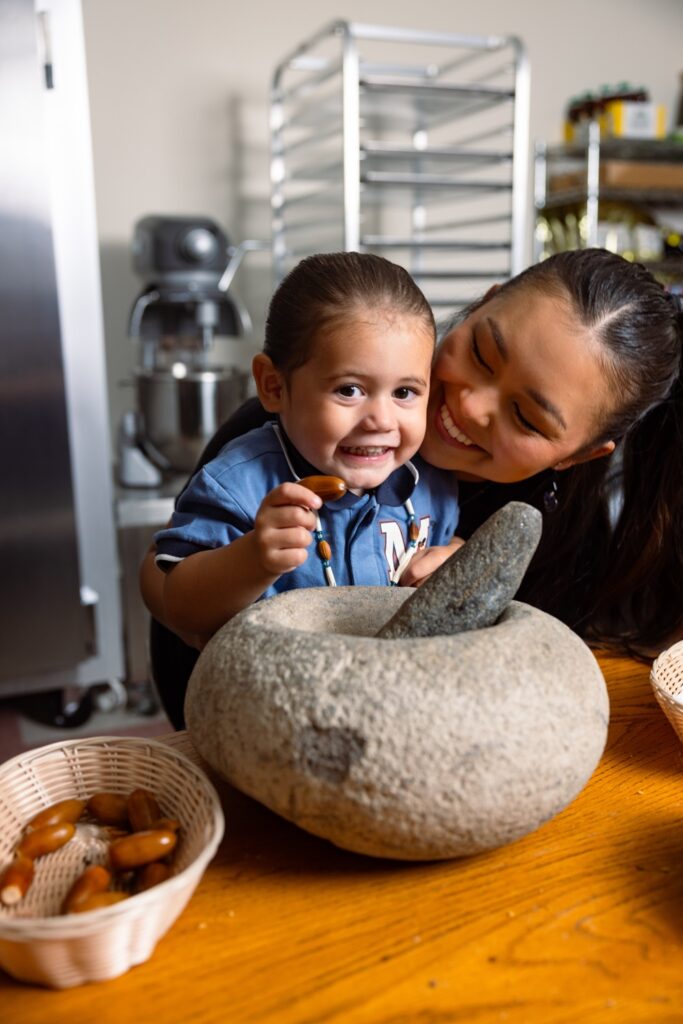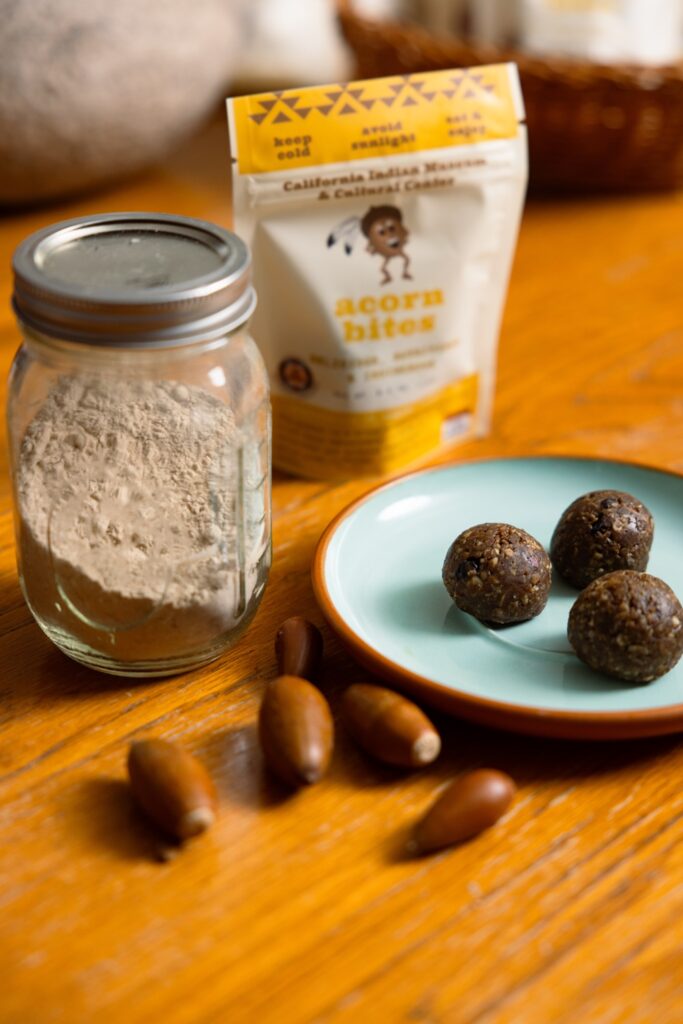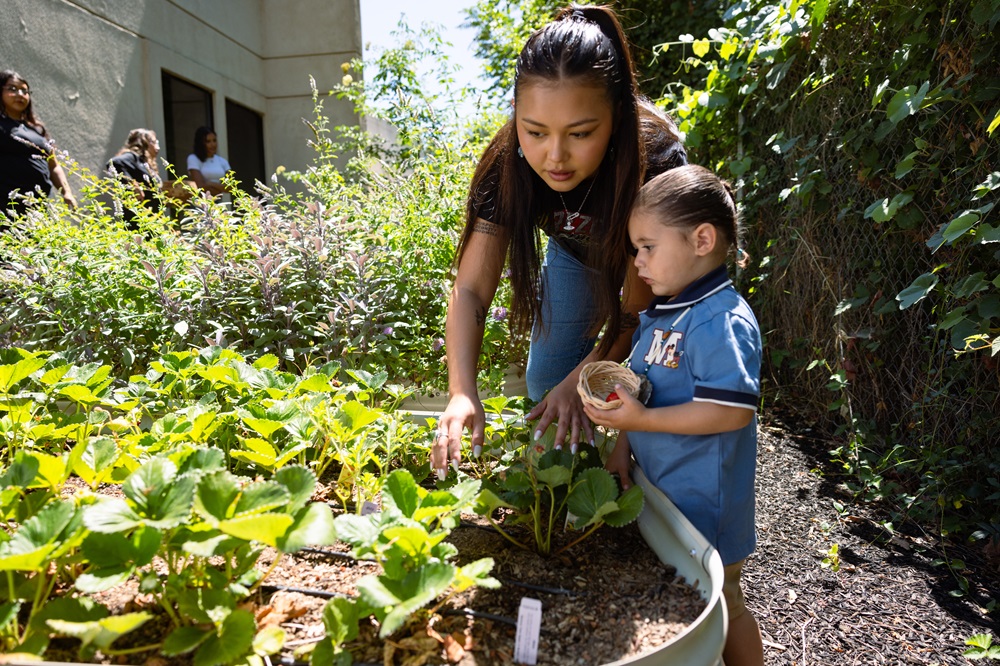Traditional Foodways on the Table
A Boost for California Native American Food Sovereignty
PHOTOS BY PAIGE GREEN
If the food products lining grocery store shelves could talk, they’d tell many a tale, including sagas of long voyages, preservatives, and shortcuts taken to maximize corporate profits. But rarely would these stories be tied to place, culture, or connection to those who produced it.
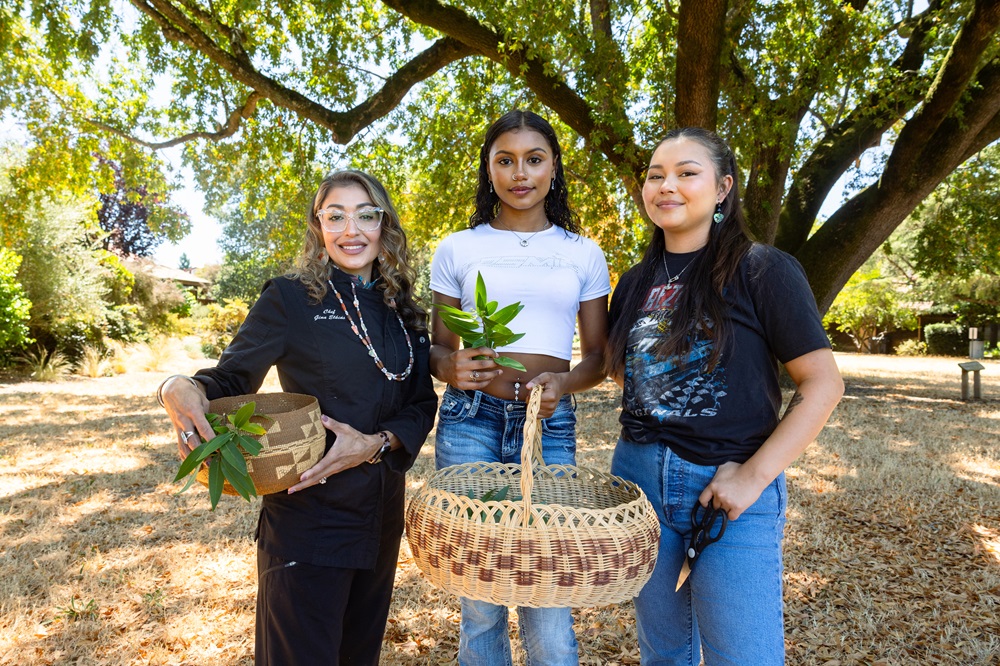
But the California Indian Museum and Cultural Center (CIMCC) in Santa Rosa aims to change all that. They just received a $1 million Congressional Community Project Award from the U.S. Small Business Administration to establish The California Traditional Indian Food Incubator. The Incubator will support the founding and development of new businesses owned by Traditional Food Producers (TFP). And importantly, the Incubator is a big boost for California Native American food sovereignty.
Food sovereignty in this case asserts that local Pomo and Miwok communities in particular can create and manage food systems based on their own cultural practices and natural resources. It describes access to cultural traditions and diets, and importantly, access to the traditional lands where these foods are gathered.
Founded in 1996, the CIMCC aims to educate the public about the rich history, vibrant culture, and contemporary life of California Native Americans. It isn’t just a place to look at artifacts—there, a California Native American historical and cultural perspective informs the visitor’s experience. The museum has also been a hub for California Native Americans to gain hands-on training in fields like museum direction, curation, design, interpretation, and now, food product development with the new incubator.
Nicole Lim, executive director of the CIMCC explains, “The California Traditional Indian Food Incubator is the next phase of our work to ensure that traditional foods can be integrated back into our daily diets.”
A New Vision
This new vision of building a secure and abundant food system goes well beyond simply keeping grocery store shelves full. The 5,000-square-foot incubator at CIMCC will provide indoor and outdoor commercial kitchen space, processing facilities, classrooms, a public space, and guidance and mentoring for traditional food producer start-ups.
Food incubators have been around since the 1960s. They traditionally provide specialty food entrepreneurs business education and access to commercial kitchen space. One reason for their success is that food safety regulations requiring that production take place in a commercial facility are often a deal-breaker for start-ups. La Cocina, a food incubator in San Francisco, opened in 2005 to help primarily immigrant women and women of color start small food businesses, creating opportunities for living-wage jobs and inclusivity in the food industry where none existed before. In Minneapolis, the Indigenous Food Lab is a professional kitchen and training center working to create food sovereignty via an Indigenous food system in tribal communities across North America.
In the big picture, the new project will support California Native American traditional diets using local ingredients including acorns, game, berries, fish, and nuts. The incubator’s resources will be available to members of local Native American nations that share geography with Sonoma, Mendocino and Lake counties. Though the current number of traditional food producers is small, the 2023 California Indian Museum & Cultural Center Traditional Food Incubator Feasibility Study Final Report showed a strong interest from Indigenous people, wholesale buyers, and the rest of the public in local foods like acorns.
An Historical Context
While it may seem unusual to locate a food incubator in a museum, the unique arrangement is ideal for this venture.
“Many of the museum’s projects fall under the umbrella of food sovereignty,” says Lim. “Our exhibit, Acorns, Quails and Cattails, showcases Pomo foods. We also have a traditional food garden and offer weekly vegetable distributions to tribal community members.”
The 15,000-square-foot museum occupies a two-acre site tucked into a business park close to the freeway in north Santa Rosa. It offers exhibitions and public programming with an emphasis on California history for students.
“All of these activities benefit the health of our community while strengthening our connection to and ability to care for our ancestral homelands,” Lim says.
Youth Lead the Way with Acorn Bites
Establishing a facility to launch new traditional food producers is an important step in the process. Acorn Bites—the first traditional food project from CIMCC—was first created back in 2016 by the Tribal Youth Ambassadors, the museum’s elementary- through college-aged Pomo and Miwok youth group. Acorn Bites are a high-protein snack made from acorns and other ingredients, and demonstrate the viable commercial market for Pomo and Miwok food. The youth group collaborates with elders to advocate for Indigenous communities through educational projects like Acorn Bites and public presentations about California Native American history, cultures and contemporary life.
“Seeing our young people work to revitalize traditional foodways gives us hope. It is a celebration of our culture and resilience,” Lim says. “Over the years they have conducted research and created exhibitions to increase access to traditional foods. Through working with cultural educators, they have learned how to identify, harvest, and process traditional foods.”
The Indian Food Incubator’s feasibility study also found that grocery buyers and consumers were interested in acorn products in particular. As such, Acorn Bites and other acorn-based products are a natural place to enter the market for CIMCC’s entrepreneurial start-ups, along with other traditional California Native American foods. The handmade snacks are high in magnesium, vitamin B, potassium, and calcium, and are currently sold online at acornbites.com and at the California Indian Museum & Cultural Center.
Establishing Food Sovereignty
According to The Committee on World Food Security (CFS), “Food security exists when all people, at all times, have physical, social and economic access to sufficient, safe and nutritious food…” But food sovereignty goes beyond that and, in this case, means that Indigenous people can produce and distribute traditional food for themselves and in the larger marketplace.
“For many people food is the gateway to learning about other cultures.” Lim explains, “For California Native Americans, food was targeted as a means of achieving colonization and assimilation. Today, California tribes only possess 7% of the land that was originally promised in treaties. Now tribes must engage in cultural gathering under various jurisdictions and policies that often create issues around accessibility to foods and cultural resources within their own homelands.”
Food sovereignty programs are flourishing across the country. In northern Wisconsin, the Red Cliff Band of Ojibwe on Lake Superior has been fishing for millennia. In 2020, the tribe built the Red Cliff Fish Company, a processing plant which keeps all aspects of their fish production within their control, creating more jobs and providing additional opportunities for tribal members. A retail store sells fresh and smoked fish, and other products to community members and the rest of the public.
Just as the Ojibwe rely on fish as a staple food, California Native Americans have relied on acorns, processing and storing large quantities each year. The success and public interest in Acorn Bites here demonstrates how Native food sovereignty enriches the entire community and can become a model of long-term sustainability.
California Native American people and their cultures hold a knowledge of this place that goes back for tens of thousands of years, and the California Indian Traditional Food Incubator is a welcome step toward bringing back the stories traditional foods tell.
California Indian Museum & Cultural Center
cimcc.org | (707) 579-3004
5250 Aero Dr, Santa Rosa
Visits available by appointment at: cimccbooking.com
Monday-Friday: 12 noon–4pm
Acorn Bites
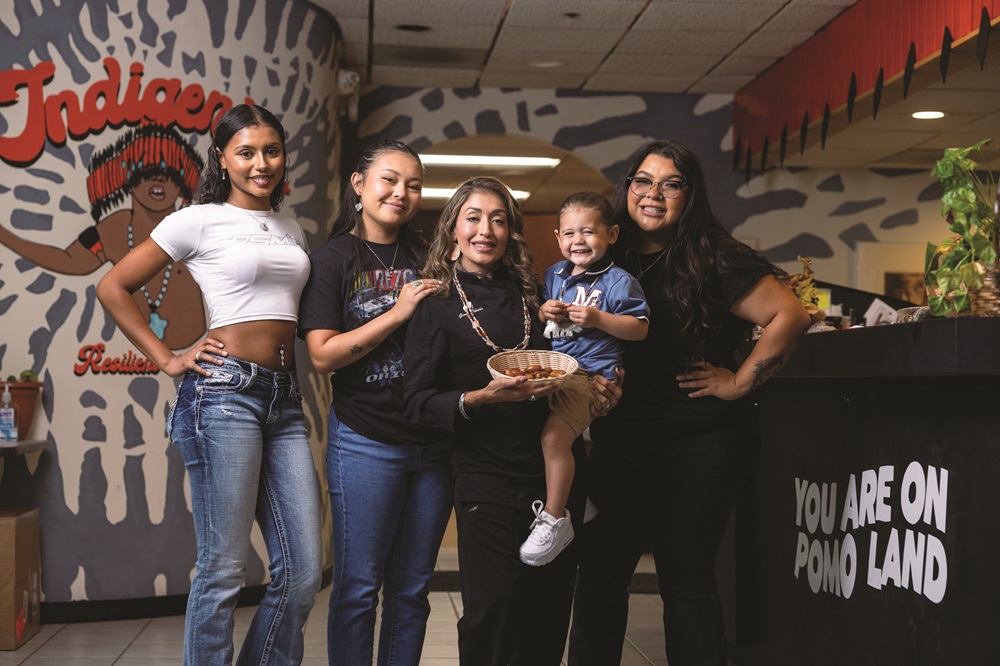
California Indian Museum and Cultural Center.
Glossary:
What is food sovereignty?
Food sovereignty is the right of a community to oversee and determine the production and distribution of their food, and to decide both the quantity and quality of what they consume and share in the marketplace.
What is a food incubator?
A Food Incubator provides business education and access to commercial kitchen space. One reason for their success is that food safety regulations requiring that production take place in a commercial facility are often a deal-breaker for start-ups.

